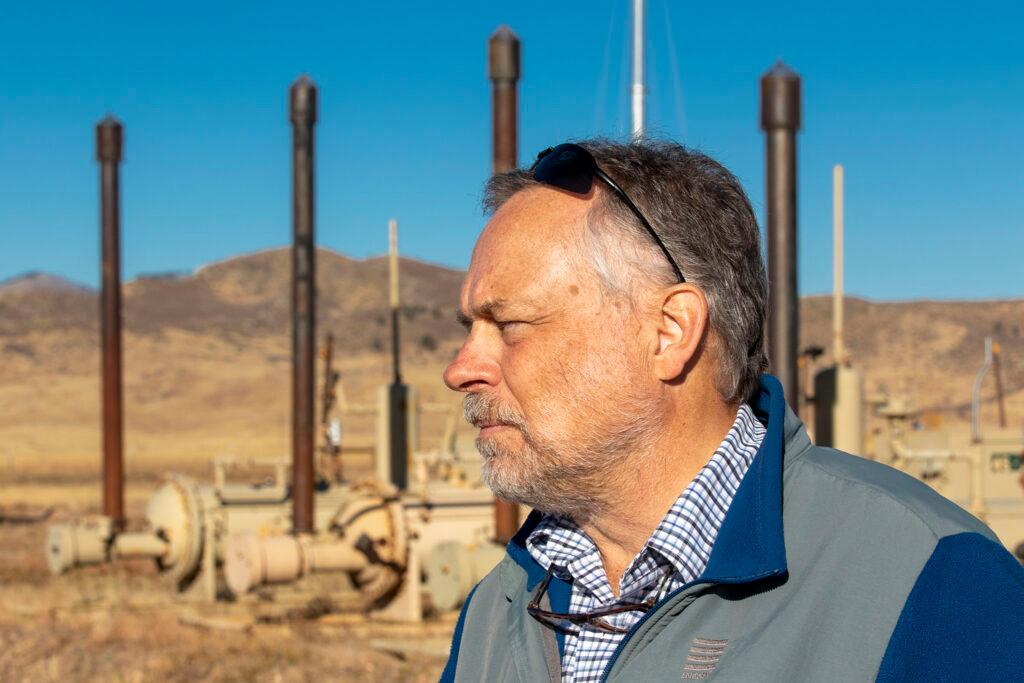
The federal government awarded Colorado State University $326 million this week to fund three projects aimed at reducing methane emissions and improving small-scale oil and gas operations nationwide.
The Department of Energy and the U.S. Environmental Protection Agency funded the awards through the Inflation Reduction Act, the landmark climate law passed by Democrats in 2022. The federal funding is among the largest awards ever received by the university.
Methane, the primary component of natural gas, is a potent greenhouse gas that traps heat much more effectively than carbon dioxide. It also lingers in the atmosphere for less time. As a result, reducing methane emissions can help slow global warming in the next few decades, buying humanity time to manage a difficult shift away from fossil fuels.
“Carbon dioxide lasts a long time in the atmosphere,” said Dan Zimmerle, a grantee and director of CSU’s Methane Emissions Technology Evaluation Center.
“ And it's much harder to make an impact on the short term by just changing CO2.”
Zimmerle’s project aims to create an “ecosystem of solutions” to reduce methane emissions seeping out of marginal, or low-producing, wells. Marginal wells are typically older than modern wells, lack access to electric power and lack equipment to cut emissions. Operators might also lack the cash to upgrade their equipment.

As a result, those wells are in danger of being “orphaned,” and turned over to the state for clean-up — a big, expensive problem in Colorado.
Zimmerle’s grant of nearly $300 million aims to work with 250 small oil and gas operators, who collectively operate around 5,000 sites. His team aims to do 10,000 individual mitigations on those sites.
By the end of the project, the goal is to identify the most effective solutions to cut emissions for low-producing wells, which could be as simple as better equipment inspections to upgrading vent systems to capture methane.
“Even after this project is done, there will be a portfolio of solutions that could be deployed to marginal wells,” Zimmerle said.

The project will also train workers to patch up leaky marginal wells in their local communities.
Another project by research scientist Anna Hodshire will create a detailed inventory of methane emissions in Colorado, Wyoming, North Dakota and eventually in 32 total states, which should help operators figure out the best sites to reduce emissions.
The third project, led by professors Daniel Olsen, Bret Windom and Timothy Vaughn, will work with energy companies to reduce emissions from compressor engines, which compress natural gas into pipelines as it travels from production wells to power plants.
The goal is to reduce those “very hard to solve” emissions by up to 90 percent, according to Zimmerle.
The announcement comes as the Biden administration races to deliver funding from its signature climate initiative before President-elect Trump‘s inauguration on Monday. Trump has vowed to rescind any funds remaining from the law when in office.
Over $74 billion of the law has already been allocated, but around $20 billion in funding could be rolled back, according to Atlas Public Policy and a report in The Guardian.









